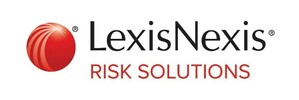Geopolitical Risks Driving Financial Crime Compliance Costs According to LexisNexis Risk Solutions Research
Geopolitics and Anti-Money Laundering Regulations are Major Contributors to Costs Borne by Financial Services Firms Across EMEA
ATLANTA, Sept. 27, 2022 /PRNewswire/ -- The latest EMEA True Cost of Financial Crime Compliance Study from LexisNexis® Risk Solutions reveals that geopolitical risk is one of the highest contributing factors to rising compliance costs. Financial services institutions surveyed across EMEA indicate that 71% of respondents identified geopolitical risk as the top external trend impacting costs, followed closely by increasing anti-money laundering (AML) regulations (70%) and evolving criminal threats (69%).
The latest edition of the study provides an analysis on responses collected during December 2021 to February 2022. The research predates several geopolitical crises including the war in Ukraine, but it shows that decision makers in financial crime compliance teams were already seeing emerging risks that have defined global business and political trends in the first half of 2022. The threat of geopolitical risk is especially heightened in markets such as Poland, the wider Central Eastern European region and the United Arab Emirates (UAE).
Geopolitical risks also reflect the screening challenges handled by financial compliance specialists. The research shows that positively identifying politically exposed persons (PEPs) is the top screening concern for financial institutions surveyed in EMEA. Forty-eight percent (48%) of respondents indicate PEP screening as a top concern followed by know your customer (KYC) requirements (46%). Poland and other Central Eastern European markets are particularly concerned with PEP screening, along with the UAE and the Netherlands. The only EMEA market where PEP screening is the least troublesome is Germany where KYC, alert resolution, sanctions screening, customer risk profiling and regulatory reporting all rank as a higher concern.
As previous True Cost of Financial Compliance research has shown, a bias towards investing in technological solutions continues to help firms mitigate the costs of compliance. As an example, this year's research shows that in France, Germany and the Netherlands where more than 50% of compliance costs were labor-related, mid/large financial firms had average costs of U.S. $56.2 million. For firms where more than 50% of costs are technology-related averaged $44 million.
Given rising geopolitical risks and the challenge of PEP screening, only 21% of firms that have a bias towards technology spend find that identifying ultimate beneficial owners (UBOs) poses a negative impact to their operations. Forty-five percent (45%) of firms with higher labor costs indicate that UBO identification is an issue.
Rocio Suarez Gray, director of financial crime compliance, LexisNexis Risk Solutions, said "Financial crime compliance leaders are amongst those grappling with the real impacts of an increasingly uncertain global geopolitical landscape. Both regulatory and geopolitical developments continue to pose significant challenges for compliance teams across EMEA and this is reflected in KYC concerns particularly on PEPs and UBO identification and the complexity to define clearer customer risk profiles."
The research shows that the financial cost of compliance continues to rise as regulations evolve: Respondents expect the average costs will continue to increase between 4.3 – 10.1%, not including spikes in general inflation across EMEA.
Rocio Suarez Gray, director of financial crime compliance, LexisNexis Risk Solutions, said, "It is not just the cost of compliance but also the complexity of it that poses a fundamental challenge for financial institutions in EMEA. Financial firms have a finite pool of talent available to them to react to external issues and regulatory demands. The right technology can elevate humans to focus on more strategic tasks and continued innovation is key to be a step ahead of criminals to detect and deter financial crime effectively. Understanding trends around solving compliance complexities will continue to be a focus for this ongoing research project."
The EMEA study surveyed 428 decision-makers across 14 markets who oversee KYC remediation, sanctions monitoring, financial crime transaction monitoring and/or compliance operations. Organizations represented include asset managers, banks, investment and insurance firms.
Download a copy of the True Cost of Financial Crime Compliance Study – EMEA Edition.
LexisNexis® Risk Solutions harnesses the power of data and advanced analytics to provide insights that help businesses and governmental entities reduce risk and improve decisions to benefit people around the globe. We provide data and technology solutions for a wide range of industries including insurance, financial services, healthcare and government. Headquartered in metro Atlanta, Georgia, we have offices throughout the world and are part of RELX (LSE: REL/NYSE: RELX), a global provider of information-based analytics and decision tools for professional and business customers. For more information, please visit www.risk.lexisnexis.com and www.relx.com.
Media Contact:
Marcy Theobald
+1 678.232.0948
[email protected]
SOURCE LexisNexis Risk Solutions

WANT YOUR COMPANY'S NEWS FEATURED ON PRNEWSWIRE.COM?
Newsrooms &
Influencers
Digital Media
Outlets
Journalists
Opted In




Share this article